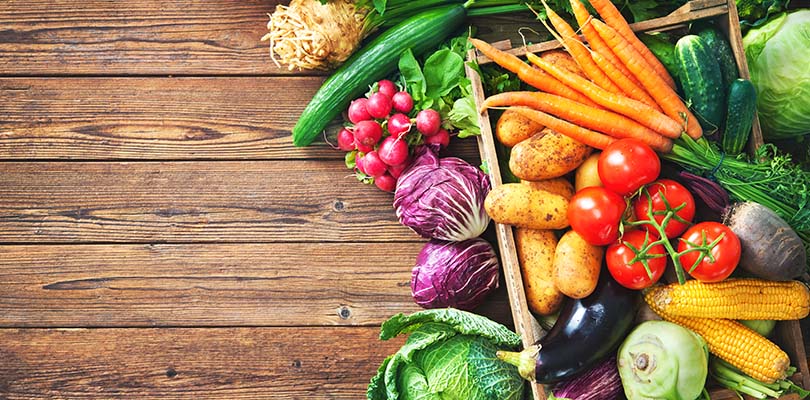10 Cancer-Fighting Foods
Cancer is a leading health problem affecting millions of individuals across the globe each year. As you may know, your diet affects all aspects of your health, including your cancer risk. By incorporating cancer-fighting foods into your diet regularly, you’ll help to lower your risk of developing cancer.
What is the Meaning of Cancer-Fighting Foods?
Cancer-fighting foods are foods that have the ability to help lower your risk of getting cancer if you include them in their diet.
Given that cancer has numerous causes such as poor diet, nutrient deficiencies, toxin exposure, and to some degree genetics, consuming a nutrient-dense diet rich with cancer-fighting foods and avoiding cancer-causing foods is an extremely vital strategy for preventing and/or treating cancer. However, navigating today’s complex food systems appears difficult for most people.
This article will discuss 10 cancer-fighting foods that you should consider adding to your diet.
Cruciferous Vegetable
Cruciferous vegetables, including broccoli, kale, and cauliflower, are full of healthy nutrients like vitamin K, vitamin C, and manganese. They also contain a plant compound called sulforaphane that is rich with anti-cancer properties.
A study carried out by researchers from Birmingham-based University of Alabama revealed that sulforaphane greatly prevents cancer cell growth and triggers apoptosis in colon cancer cells.
Another study by Bidisha Paul from the same university demonstrated that sulforaphane combined with a compound found in soybeans called genistein substantially deters the development of breast cancer cells.
Sulforaphane also impedes a cancer-causing enzyme called histone deacetylase. At least three servings of these nutritious vegetables a week can lead to great cancer-preventive effects.
Apples
Apples have many anticancer properties thanks to the plant-based compounds called polyphenols found in them. These compounds may
inhibit inflammation, infections, and cardiovascular diseases. Some researchers claim that polyphenols contain tumor-fighting abilities and anti-cancer properties.
Further, a study published in the Journal of Food and Drug Analysis in 2018 revealed that apple phloretin notably prevents the development of breast cancer cells without affecting the normal ones.
Organic Meats
Organic meats, such as chicken liver or beef, are worth adding into your cancer-fighting diet, as they are nutrient-rich and exceedingly high in vitamin B12. Organic meats supply your body with minerals that help cleanse the liver and boost the ability to get rid of toxins from the digestive system and blood.
Using sources of selenium, B vitamins, and zinc to detoxify helps clean blood, synthesize the bile required to break down fats, create a natural balance of hormones, and store important minerals, vitamins, and iron.
Organic foods are also helpful in neutralizing the effects of hormone disruptions, alcohol, prescription medications, low potassium, viral infections, and high triglyceride levels.
Cultured Dairy Products (Probiotics)
These products contain high amounts of “good bacteria,” microorganisms that play the important role of ensuring your intestinal microflora has a natural bacteria balance. They boost immunity as well.
Two components of early cancer detection are education and screening, and both are important. A cancer diagnosis can be less devastating when found early.
The gut accommodates a bigger percentage of your immune system, which explains why probiotic foods can come in handy in hindering tumor growth and helping cells renew.
One of the simplest strategies for increasing your probiotic intake is consuming them in their natural form. Sources of natural probiotics include raw milk products such as yogurt and cheese.
Healthy Unrefined Oils
Your brain and nervous system are in charge of your whole body functioning, and fatty acids make up nearly 60% of your entire nervous system.
Unfortunately, many of the traditional processed fats and oil primarily consumed these days are hydrogenated oils, which can damage the membranes of our cells, resulting in unhealthy cells and toxicity. Processed and bad fats cause problems in your whole body, resulting in cell congestion, poor immune function, and inflammation that starts the disease.
Switching from processed hydrogenated oils and vegetable oils to unrefined oils like coconut oil, flax oil, cod oil, and extra virgin olive oil can help to nourish your gut and encourage excellent immune function.
Carrots
Carrots have many essential nutrients, including vitamin A, vitamin K, and antioxidants. They also contain high quantities of beta-carotene that give carrots their unique orange color.
Recent studies show that beta-carotene is effective in strengthening the immune system and may fight some forms of cancer. There have also been eight studies which have also linked beta-carotene with a decrease in the risk of prostate and breast cancer. Lastly, another review demonstrated that higher intake of carrots leads to a 26% drop in the risk of stomach cancer.
Legumes
Legumes, including beans, lentils, and peas, are rich in fiber that may be useful in lowering the risk of cancer. Various studies have shown a link between consuming a high amount of legumes and a reduction in the risk of deadly colorectal cancer.
Another study conducted by Meera Sangaramoorthy, in collaboration with two other researchers, established that people who consumed diets rich in fiber had a 20% decreased risk of developing breast cancer compared to those who had less daily fiber intake.
Nuts and Seeds
Flaxseeds and chia seeds are, without a doubt two of the seeds with a high amount of nutrients in the world. They offer omega-3 fatty acids, fiber, and an array of crucial minerals.
Sesame seeds, sunflower seeds, hemp seeds, and pumpkin seeds are also beneficial as they contain high amounts of healthy fatty acids. Consuming at least two tablespoons per day of nuts and seeds can help to lower your risk of cancer.
Mushrooms
There are hundreds of mushrooms species available with varying
appearances, health benefits, and taste. Mushrooms are recognized globally as immune-booster, and they have been utilized to prevent and/or fight cancer for several centuries.
For example, cordyceps, reishi, and maitake can boost immune function, inhibit tumor development, and stimulate cell regeneration.
Berries
Berries top the list of foods with high levels of antioxidants worldwide. Blueberries, cherries, goji berries, blackberries, raspberries, and strawberries are highly accessible and commonly used in various kinds of recipes.
They provide vitamin A, vitamin C, and gallic acid, a potent antifungal/antiviral substance that enhances immunity.
Conclusion
Consuming a quality diet consisting of cancer-fighting foods, coupled with a few lifestyle changes such as working out, cutting back on alcohol consumption, getting adequate sleep, and avoiding stress can go a long way in improving your overall health and reducing your risk of cancer.







